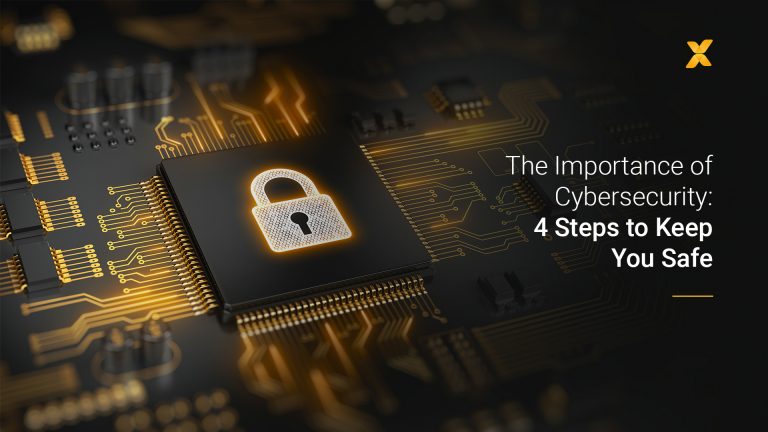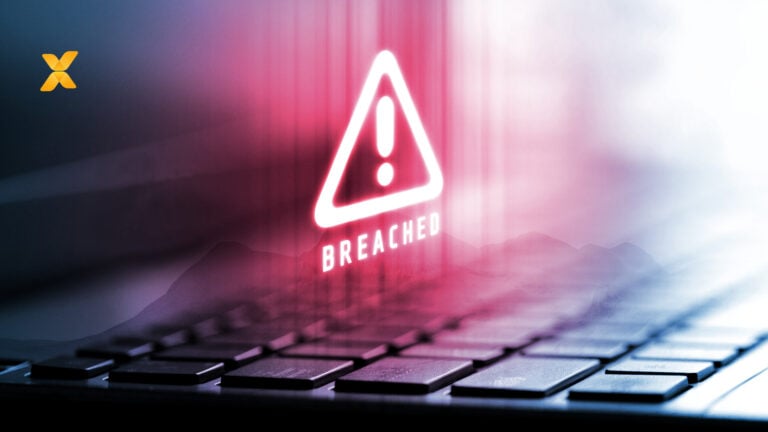Are you confident in your ecommerce security setup? It’s hard to feel secure as new stories emerge daily about digital ambushes on online businesses including data breaches and ransomware attacks.
The pandemic raised global cyber threats to an all-time high, with 81% of global businesses experiencing elevated levels of threats, and a further 79% suffering from downtime due to security incidents. This illustrates that your business doesn’t need to experience a full-scale data breach to suffer as a result of bad actors tampering with your systems. If your ecommerce store crashes on Black Friday because of a DDoS attack, you may experience a significant loss of revenue.
We’ve compiled an ecommerce security guide to help you formulate the right offensive methods for your business.
Related Reading: Risky Business: 11 Key Ecommerce Risks and How to Dodge Them
What’s ecommerce security?
Ecommerce security is a mixture of methods and protocols that aim to protect people who buy or sell goods and services online. It ensures that digital transactions remain safe and private. Ecommerce security practices protect your business and the data belonging to your customers.
Who’s responsible for your ecommerce security?
Whether it’s in-house, such as ecommerce manager or a security officer, or outsourced to your solution provider or a dedicated security firm, it’s important to designate a responsible party for your ecommerce security.
What’s enough when it comes to ecommerce security?
There’s no “enough;” rather, ecommerce security should be a constant work-in-progress, a top priority, and a continuous effort. If you did experience a data breach and were faced with an investigation, you would want to show that you did everything you could to protect your data in good faith.
Juniper Research recently found that payment fraud will cost ecommerce merchants up to $206 billion between 2021 and 2025. Not only will such attacks cause a loss in revenue, but also losses in market shares, and reputation. An ecommerce store should, therefore, implement robust security measures and tools to prevent attacks.
The top 6 methods used to boost ecommerce security
1. Reinforce Authentication
A relatively easy way to increase security on your ecommerce site is by ensuring the identity of your shoppers and your employees. Make use of an authentication tool, but be sure to implement strict password requirements.
While this may seem like a no-brainer, passwords such as “Walmart123,” “password,” and “Pete85” continue to create problems for organizations. As the Colonial Pipeline security incident in the US showed, hackers only need one weak password to force their way into your systems.
To enforce good authentication practices, create rock-solid password requirements for your customers and your staff. As an extra precaution, consider using software that analyzes your customer risk profile and offers fraud protection.
2. Install Web Application Firewalls (WAF)
Bad actors use endless innovative methods to try and breach your web applications. A common mode of attack is SQL injection, which cybercriminals use to collect your private data. Bad actors utilize cross-site scripting (XSS) attacks to assume control of accounts, modify your site’s content, or re-direct unassuming customers to their own website.
Regardless of the manner of attack, the results can be devastating for your business and your customers. Enter web application firewalls, or “WAF.” WAFs reduce the risk of attacks by safeguarding the information in your systems. Ensuring the safety and privacy of your customers’ personally identifiable information (PII) is crucial for any ecommerce business. A WAF oversees all incoming and outgoing traffic to your site.
3. Exercise Platform and Security Hardening
You wouldn’t install a high-tech front door on your house while you neglect cracked windowpanes and a faulty backdoor. This analogy perfectly shows why you need to practice consistent platform hardening, a process that reduces the threat of attacks.
It’s common for ecommerce stores to contain dormant processors or software because it’s easier and cheaper to leave them. After all, they’re not hurting anyone, and uninstalling or removing code takes time, energy, and money.
Bad actors are familiar with software that’s unsupported or unpatched—after all, the software company usually shares such updates. If one of your dormant software develops a weakness, you will need to resolve the issue so bad actors can’t use it against you.
Avoid wasting time, resources, and valuable space in your systems by removing all latent software, programs, and systems that could potentially cause problems for your ecommerce business.
Make security hardening a routine part of your security protocols and regularly ensure that everything is patched, updated, and absolutely necessary to your business.
In addition to platform hardening, consider enforcing a company-wide security hardening guideline to define your company’s best practice methods.
You may opt to implement supporting high-level guidelines for areas such as session timeouts, batching, extracting default configurations, and more. This ensures that your staff members are knowledgeable and up-to-date on your security endeavors.
4. Stay Locked and Loaded with Encryption
There’s an immense volume of data traveling through the air at all times. Your goal is to ensure that the data you’re sending will end up with the right recipient, and will not be seen by anyone else.
A widely used model to gauge the information security of a business is the CIA (confidentiality, integrity, and availability) triad. Confidentiality refers to encryption, a simple way to make sure every little bit of data remains private.
A simple way to encrypt your data is by implementing a Secure Service Layer (SSL) certificate on your site.
An SSL certificate ensures that your traveling data reaches only your intended recipient. This is crucial for ecommerce businesses because all the information you send will pass through multiple computers before it arrives at the destination server.
If your ecommerce site lacks the protection of an SSL certificate, any electronic device between the data sender and the server can gain access to private data. Bad actors can use this to steal login details, payment information, and more.
The tried and true SSL certificate makes your data unreadable to prying eyes and as a bonus, the “https” tells your customers you take their security seriously.
5. Implement Risk Assessment
As bad actors target ecommerce stores more and more, digital businesses must enforce routine risk assessment. A regular risk assessment provides a bird’s eye view of your security risks and the appropriate mitigation. From there, you can assess the potential impact of individual risks that exist in your system, and focus on the most urgent threats.
Regular risk assessment offers a well-rounded overview of your current security standing, helps you stay ahead of attackers, and ultimately, shows your customers that you prioritize the safety of their data.
We recommend annual penetration testing and security audits annually at a minimum, and after any major updates or changes to your systems.
Related Reading: Ecommerce Security Audit
6. Safeguard your Customers and your Business
Ensuring the safety of your customers’ private data is crucial to the longevity of your ecommerce business. Implementing data encryption, enforcing strict authentication requirements, securing your systems, and routinely testing your systems are just a handful of ways that can help you protect your ecommerce solution and your customers.
At Vaimo, we can help you ensure that your security measures match the needs of your business. We work with clients across diverse sectors and industries to solidify their online protection and provide an overview of their security standing. Our Data Breach Monitoring tool detects major potential breaches, such as supply-chain attacks, Magecart attacks, skimming, and form-jacking, in real-time.
We also offer ecommerce-focused penetration testing and security audits to provide you with a deep insight into any potential vulnerabilities in your systems. Don’t sleep on ecommerce security—ensure the longevity of your business today!
Contact your local Vaimo security expert here.








